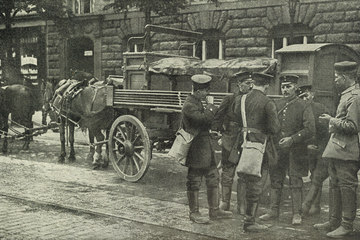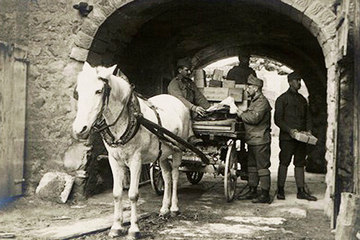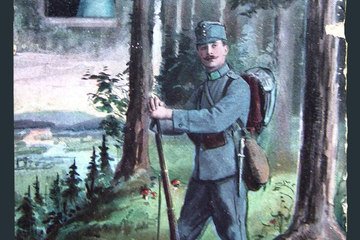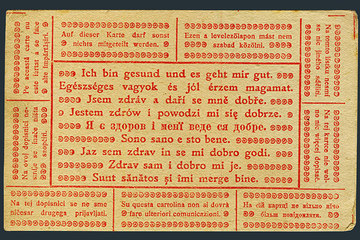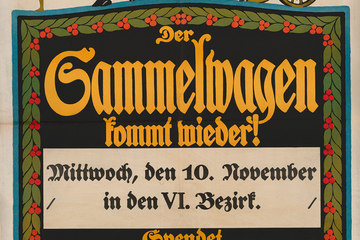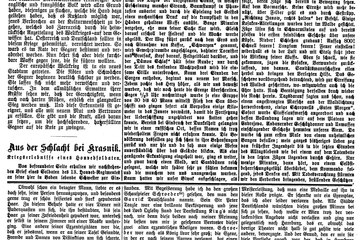The military postal service and wartime correspondence during the First World War
During the First World War the term Feldpost in Austria-Hungary was used to refer to two concepts: on the one hand the organizations of the civil and military authorities responsible for postal communications between the military frontline and the home front and internally within the Imperial and Royal Army, and on the other hand the actual letters, postcards and parcels that were conveyed using this service.
Between 1914 and 1918 Feldpost became a cultural mass phenomenon that embraced all levels of society. The number of letters, postcards and parcels sent by this service between soldiers at the front and their loved ones at home reached into the billions. Daily communication via letter or postcard not only represented a sign of life but also served to keep family ties alive.
Private correspondence was also exploited for the purposes of war propaganda. As the historian Martin Humburg has put it, Feldpost increasingly became a ‘weapon’ that was intended to have a positive effect on the troops’ will to fight.
Translation: Sophie Kidd


